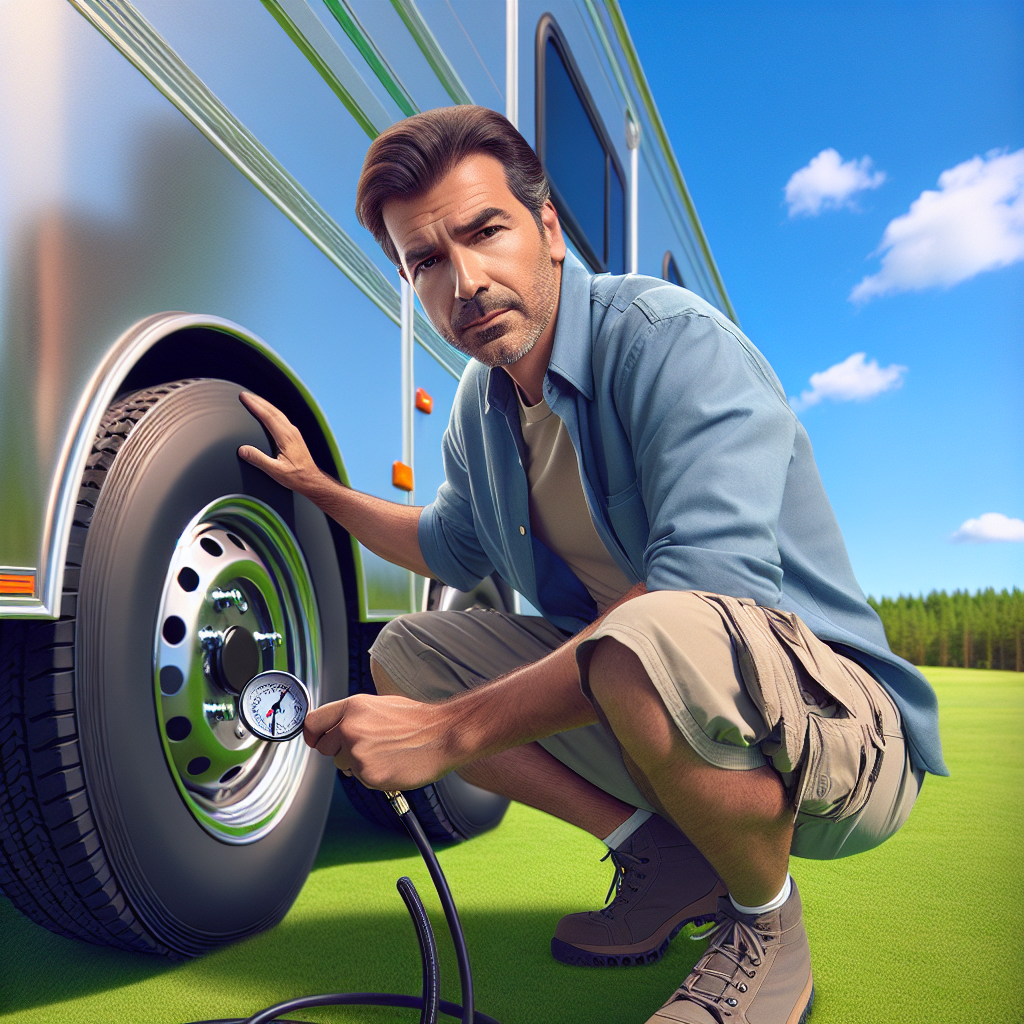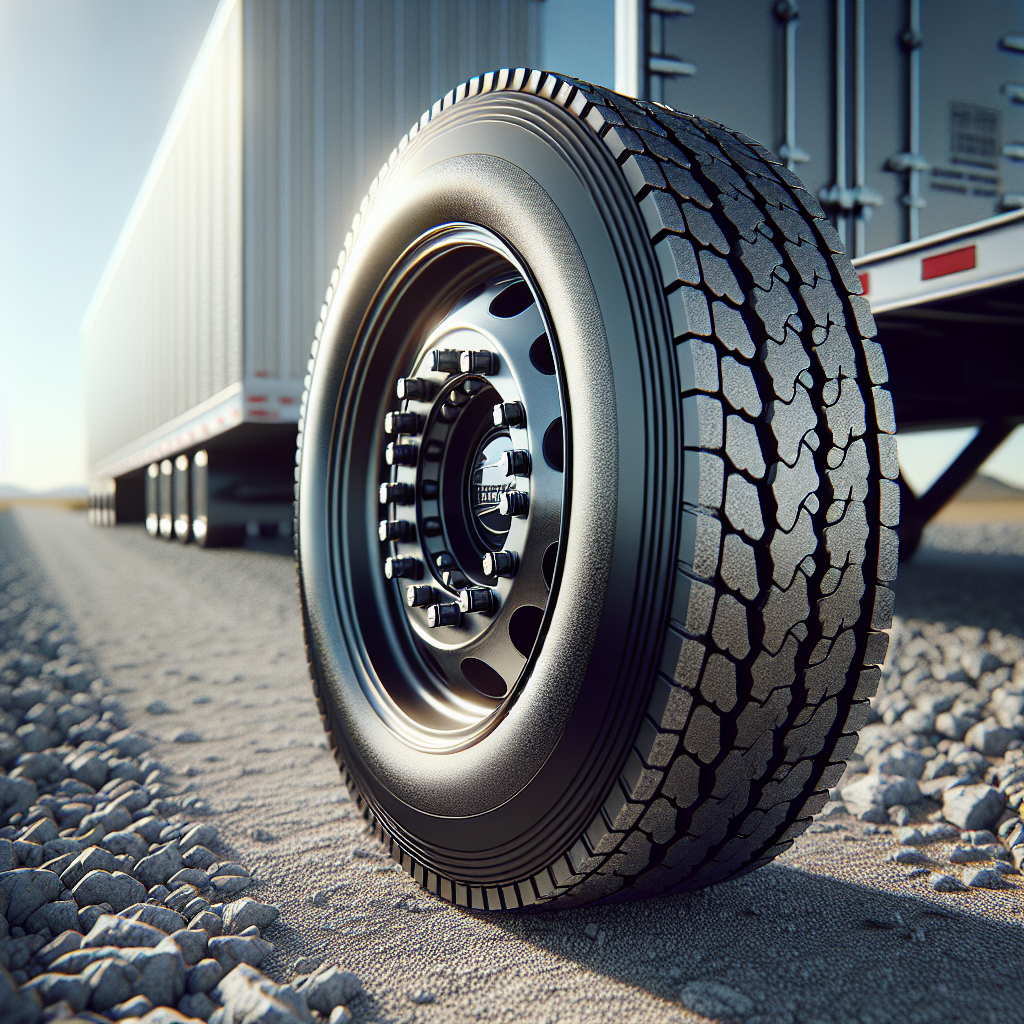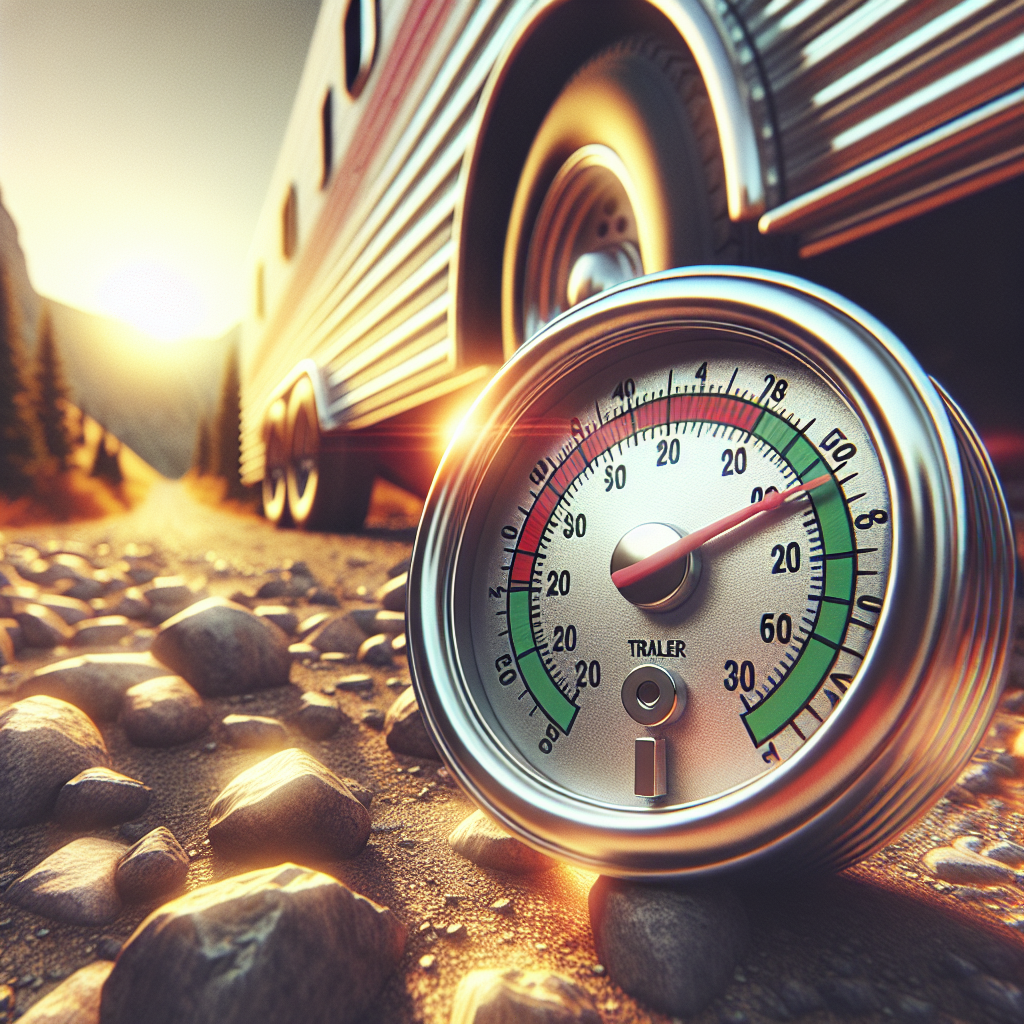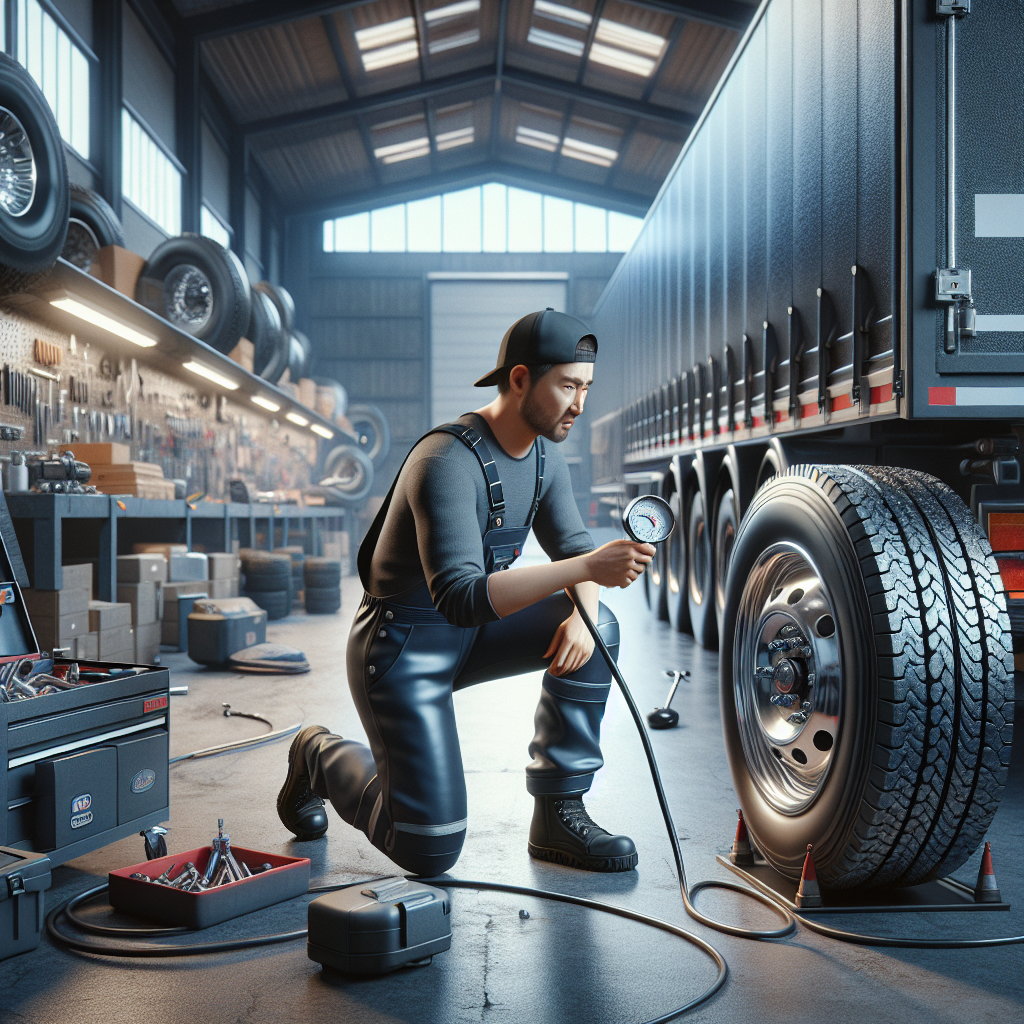Ensuring the right tyre pressure is crucial for the safety and performance of your trailer. Many trailer owners overlook this essential aspect, which can lead to increased wear and tear, reduced fuel efficiency, and even dangerous accidents. Knowing how to determine tyre pressure like a pro not only safeguards your vehicle but also enhances your overall towing experience.
Tyre pressure directly affects how your trailer handles on the road. Under-inflated tyres can cause excessive heat buildup, leading to potential blowouts. Conversely, over-inflated tyres can result in a harsh ride and reduced contact with the road, diminishing traction and stability. To maintain optimal performance, it is vital to regularly check and adjust tyre pressure according to the manufacturer's specifications.
In this article, we will explore expert tips and techniques on how to determine tyre pressure effectively. You’ll learn about the tools needed, the best practices for checking tyre pressure, and how to interpret the readings to ensure your trailer is always in top shape. Tow with peace of mind, knowing that trailerwatchdog is standing guard.
Understanding the Importance of Proper Tyre Pressure

Understanding the importance of proper tyre pressure is fundamental for anyone who operates a trailer. Tyres are the only contact point between your trailer and the road, making their condition critical for safe towing. Correct tyre pressure ensures optimal traction, handling, and fuel efficiency.
When tyre pressure is maintained at the recommended levels, it helps distribute the weight of the trailer evenly across all tyres. This not only extends the lifespan of the tyres but also reduces the risk of premature wear. Additionally, properly inflated tyres improve braking performance and stability, significantly enhancing safety during towing.
On the other hand, both under-inflation and over-inflation can lead to serious issues:
- Under-inflated tyres: These can cause increased rolling resistance, leading to higher fuel consumption and overheating, which may result in blowouts.
- Over-inflated tyres: These can create a harsh ride, reduce traction, and increase the risk of punctures due to reduced contact with the road.
Regularly checking tyre pressure not only contributes to the safety of your trailer but also enhances its overall performance and longevity. By making this a routine part of your trailer maintenance, you can ensure a smoother, safer journey every time.
Tools You Need for Accurate Tyre Pressure Measurement

To accurately measure tyre pressure, having the right tools is essential. Investing in quality equipment can make the difference between precise readings and potentially hazardous miscalculations. Here are the essential tools you need for effective tyre pressure measurement:
- Tyre Pressure Gauge: This is the primary tool for measuring tyre pressure. There are various types available, including digital, dial, and stick gauges. Digital gauges are often preferred for their ease of use and accuracy.
- Portable Air Compressor: Having a portable air compressor handy allows you to inflate your tyres to the correct pressure immediately. Look for models that are compact and easy to store.
- Tyre Inflator with Pressure Gauge: Some tyre inflators come with built-in pressure gauges, making it convenient to inflate and check pressure simultaneously.
- Valve Stem Tool: This tool is used to remove valve cores if you need to replace them or adjust tyre pressure more efficiently.
- Pen and Paper or Mobile App: Keeping a record of your tyre pressure readings can help you track changes over time and maintain optimal pressure.
By using the right tools, you not only ensure accurate measurements but also enhance the safety and performance of your trailer. Regular checks with these tools will contribute significantly to your overall towing experience.
Step-by-Step Guide to Checking Tyre Pressure
Checking your tyre pressure is a straightforward process that can significantly impact the safety and performance of your trailer. Follow this step-by-step guide to ensure you get accurate readings every time:
- Gather Your Tools: Before starting, make sure you have your tyre pressure gauge, portable air compressor, and any other necessary tools ready.
- Check the Recommended Pressure: Refer to your trailer's manual or the sticker located on the trailer door or frame for the manufacturer’s recommended tyre pressure.
- Ensure Tyres Are Cold: For the most accurate reading, check the tyre pressure when the tyres are cold, ideally before you start driving. If you have been driving, wait at least three hours for the tyres to cool down.
- Remove the Valve Cap: Unscrew the valve cap from the tyre you wish to check and place it somewhere safe to avoid losing it.
- Use the Tyre Pressure Gauge: Press the gauge firmly onto the valve stem and hold it in place for a second. The gauge will provide a reading of the current tyre pressure.
- Compare Readings: Compare the reading from your gauge with the recommended pressure. If the reading is too low, you will need to inflate the tyre.
- Inflate if Necessary: If the pressure is low, use your portable air compressor to add air. Make sure to check the pressure frequently while inflating to avoid over-inflation.
- Replace the Valve Cap: After checking or adjusting the pressure, securely replace the valve cap to prevent dirt and moisture from entering the valve.
- Repeat for All Tyres: Repeat the process for each tyre, including the spare if applicable.
By following these steps, you can maintain optimal tyre pressure and ensure a safe and efficient towing experience.
Common Tyre Pressure Myths Debunked

When it comes to tyre pressure, misinformation can lead to dangerous consequences. Here, we will debunk some of the most common myths surrounding tyre pressure to help you make informed decisions:
- Myth 1: Tyre Pressure Is Only Important for Fuel Efficiency: While maintaining proper tyre pressure does improve fuel efficiency, it also plays a critical role in safety. Under-inflated tyres can lead to blowouts, reduced braking performance, and compromised handling.
- Myth 2: All Tyres Should Be Inflated to the Same Pressure: This is incorrect. Different tyres have different pressure requirements based on their size, load capacity, and the vehicle's specifications. Always refer to your trailer’s manual for the correct pressure settings.
- Myth 3: Tyres Don’t Lose Pressure in Cold Weather: Many believe that tyres stay inflated during colder months, but this is not true. Cold temperatures can cause air to contract, leading to lower tyre pressure. Regular checks are essential, especially in winter.
- Myth 4: You Only Need to Check Tyre Pressure Once a Month: While checking once a month is a good rule of thumb, it’s advisable to check your tyre pressure before any long journeys. Frequent checks can help identify slow leaks or changes in pressure.
- Myth 5: If the Tyre Looks Fine, the Pressure Is Fine: A visual inspection of your tyres is not sufficient to determine their pressure. Always use a tyre pressure gauge to get an accurate reading.
By debunking these myths, you can enhance your understanding of tyre maintenance and ensure a safer towing experience.
Tips for Maintaining Optimal Tyre Pressure

Maintaining optimal tyre pressure is essential for ensuring safety, performance, and longevity of your trailer's tyres. Here are some practical tips to help you keep your tyres in top condition:
- Regular Checks: Make it a habit to check your tyre pressure at least once a month and before any long trips. Use a reliable tyre pressure gauge for accurate readings.
- Follow Manufacturer Guidelines: Always refer to the manufacturer’s recommendations for the correct tyre pressure. This information can usually be found in the owner’s manual or on a sticker located on the driver’s side door jamb.
- Monitor Temperature Variations: Be aware that tyre pressure can fluctuate with temperature changes. A drop in temperature can lead to a decrease in pressure, so adjust accordingly during seasonal transitions.
- Check When Cold: For the most accurate readings, check your tyre pressure when the tyres are cold, as driving can heat up the tyres and result in higher pressure readings.
- Inspect for Damage: Regularly inspect your tyres for signs of wear, damage, or foreign objects lodged in the tread. Addressing issues early can prevent more significant problems down the road.
- Use a Tyre Monitoring System: Consider investing in a tyre monitoring system like TrailerWatchdog to keep real-time track of your tyre pressure and temperature. This technology can alert you to potential issues before they become serious problems.
By following these tips, you can ensure that your trailer’s tyres remain in optimal condition, enhancing safety and performance on the road. Tow with peace of mind, knowing that trailerwatchdog is standing guard.








